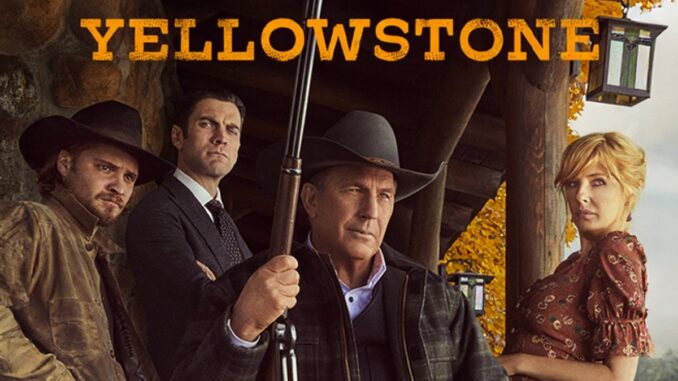
The End of the Trail and the Future in the Saddle: Yellowstone 2025 and the Modern Cowboy Movie
The dust of Yellowstone’s saga is settling, and with the announcement of its final chapter in 2025, the horizon of the modern cowboy movie flickers with both closure and a spark of reinvention. While Yellowstone has undeniably redefined the landscape of the genre, its ending invites us to contemplate the legacy it leaves behind, and the paths that modern Westerns might forge in its wake.
Yellowstone’s success hinges on its potent cocktail of familiar and contemporary themes. It draws upon the timeless romance of the American West: the sprawling ranches, the rugged individualism, the deep connection to the land. But it also injects modern anxieties: environmentalism versus tradition, the encroachment of urbanization, the moral complexities of wealth and power. The Dutton family, archetypal cowboys in the 21st century, struggle to protect their heritage from forces both internal and external, mirroring the anxieties of a nation grappling with its own identity. The final part of Yellowstone promises to deliver a climax of this conflict, potentially answering the burning questions surrounding the fate of the ranch, the Duttons’ internal struggles, and the future of the land itself. Will they ultimately succumb to the pressures of progress, or will they find a way to maintain their way of life? The answers will undoubtedly shape the future narratives of the genre.
One potential outcome of Yellowstone’s conclusion is a move towards greater authenticity and historical nuance in Western storytelling. While Yellowstone romanticizes certain aspects of the cowboy lifestyle, it often glosses over the less palatable truths of the West: the exploitation of Native Americans, the brutal realities of ranching life, and the limited roles afforded to women and minorities. The end of Yellowstone might create space for narratives that delve deeper into these complexities, exploring the West through the lens of marginalized voices and providing a more comprehensive and historically accurate depiction of the era. This could involve highlighting the contributions of Black cowboys, shedding light on the experiences of Indigenous communities fighting for their land, or exploring the challenges faced by women in a male-dominated society.
Furthermore, the ending of Yellowstone could trigger a shift in focus from grand, operatic sagas to more intimate and character-driven narratives. While the Duttons’ sprawling drama has captivated audiences, the genre might benefit from exploring the lives of ordinary individuals grappling with the realities of contemporary Western life. These stories could focus on struggling ranchers, small-town communities, or the challenges faced by those trying to preserve their cultural heritage in a rapidly changing world. Imagine a film about a single mother trying to keep her family’s ranch afloat, or a documentary exploring the cultural preservation efforts of a Native American tribe. These stories, while lacking the bombastic spectacle of Yellowstone, could offer a more grounded and resonant exploration of the modern West.
Another potential direction for modern cowboy movies lies in embracing genre-bending elements. Yellowstone itself has flirted with elements of crime drama, family saga, and even political thriller. Future Westerns could further blur genre lines, incorporating elements of science fiction, fantasy, or horror to create fresh and innovative narratives. Imagine a Western set in a dystopian future, where cowboys battle corporate overlords for control of vital resources, or a supernatural Western exploring the folklore and mythology of the American West. These genre mashups could inject new life into the genre, attracting a wider audience and pushing the boundaries of what a cowboy movie can be.
Ultimately, Yellowstone’s legacy will be defined not just by its own success, but by the impact it has on the future of the modern cowboy movie. Its ending provides a crucial inflection point, a chance for the genre to reassess its direction and explore new thematic and narrative possibilities. Whether the future holds a move towards greater authenticity, more intimate character studies, or genre-bending experimentation, one thing is certain: the spirit of the cowboy, and the stories he embodies, will continue to ride into the sunset, adapting and evolving with the times. The dust may settle on the Dutton Ranch, but the trail blazed by Yellowstone will continue to guide the modern Western as it navigates the complex and ever-changing landscape of American storytelling.
